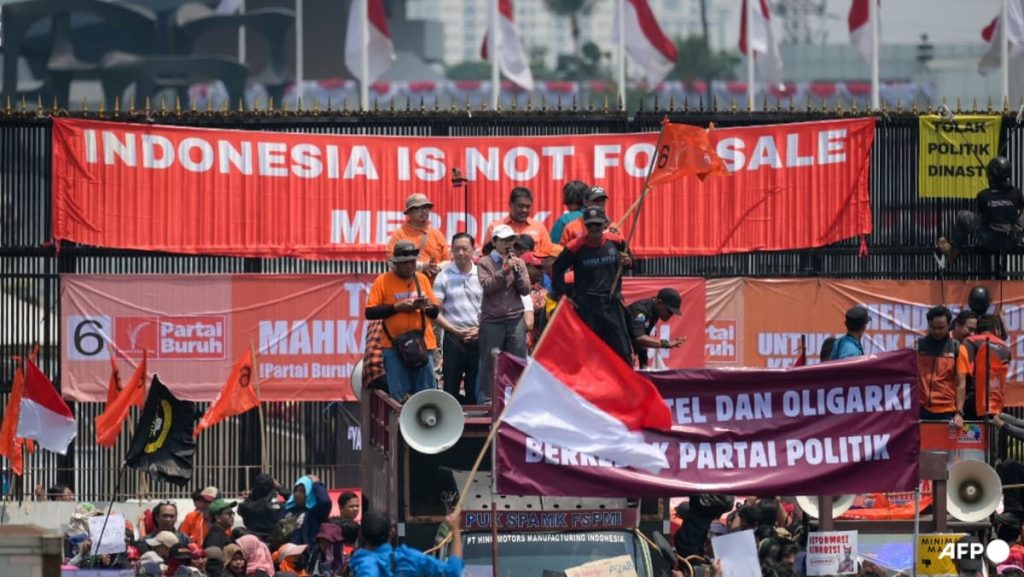Protestors are opposing parliament’s efforts to quickly pass a bill that would reverse a recent decision by the Constitutional Court. The decision removed the threshold for political parties or coalitions to nominate candidates for local heads in the upcoming elections, sparking controversy.
The court’s ruling allowed parties to nominate candidates for regional heads even if they did not meet the previous 20 per cent threshold of legislative seats in the regional council or 25 per cent of the popular vote. This decision potentially paved the way for former Jakarta governor Anies Baswedan to run for his old position.
Anies, who had lost to Prabowo in the February presidential election, had been abandoned by parties that previously supported him as they joined Prabowo’s coalition. Now, a coalition of 12 parties known as KIM Plus is backing former West Java governor Ridwan Kamil for the Jakarta gubernatorial race.
The Jakarta governor position is highly sought after as it is seen as a potential stepping stone to the presidency. Anies’s chance of getting the Indonesian Democratic Party of Struggle’s endorsement for the race improved after the court’s decision, as the party did not meet the previous threshold on its own.
In addition to the decision on the nomination threshold, the Constitutional Court also ruled that gubernatorial candidates must be at least 30 years old at the time they register to run for elections. This ruling would prevent Jokowi’s youngest child, Kaesang Pangarep, from running for governor of Central Java in the upcoming elections.
The court’s rulings were initially praised by activists and academics as a victory for democracy. However, the joy among activists was short-lived as parliament moved swiftly to pass a bill to reverse the court’s decision, sparking protests from those who supported the original ruling.
The fast-paced political developments leading up to the upcoming elections have created tensions and uncertainties as candidates and parties jostle for political positions. The overturning of the court’s decision by parliament raises concerns about the independence of the judiciary and the impact on democratic processes in Indonesia.


